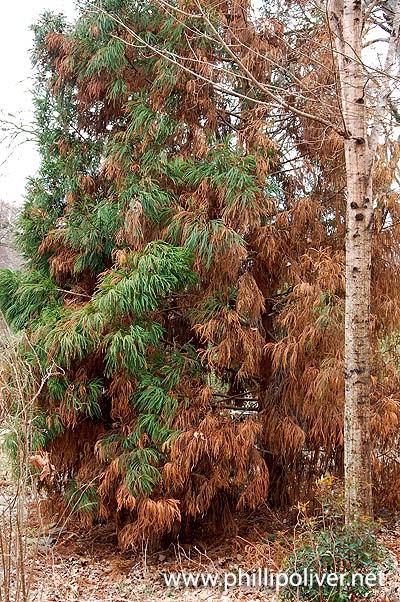Winter Rose Care & Pruning
Although major rose pruning is not done until late February into early March, there are a few things I do to get roses settled in for the winter.
Pick off any remaining leaves, if possible. I know that can be a big job if there are still many leaves left on the plant but you don't want leaves, especially diseased leaves, left to fall and harbor spores for next season.
Clean the area around the base of the rose. Rake out all leaves and dispose of them in the trash, not the compost.
For extra measure and especially for roses that had problems this year, a dormant oil spray as well as a copper fungicide is recommended. I use a combination of Monterey Horticultural Oil and Monterey Liqui-Cop. The formula is 1 ounce of horticultural oil and 2 ounces of Liqui-Cop in one gallon of water. Spray the canes as well as the ground surrounding the base of the rose. Make sure you do this on a dry day. This can be repeated later in the winter and early spring. (At the nursery, we recommend three sprayings - on New Year's Day, Valentine's Day and early to mid March). Note: Read the label for more information, especially when it comes to combining products. The Monterey oil and copper fungicide can be combined but others may not. Check to make sure!)
Finally, cover the base of the rose with mulch. You can use anything you have - compost, leaves, bark chips, etc. Roses are generally very hardy here but it doesn't hurt to add some protection. At the beginning of spring, the mulch will be removed.
That's it for now. Around March 1, I will do more extensive pruning and get them ready for another season.







Comments